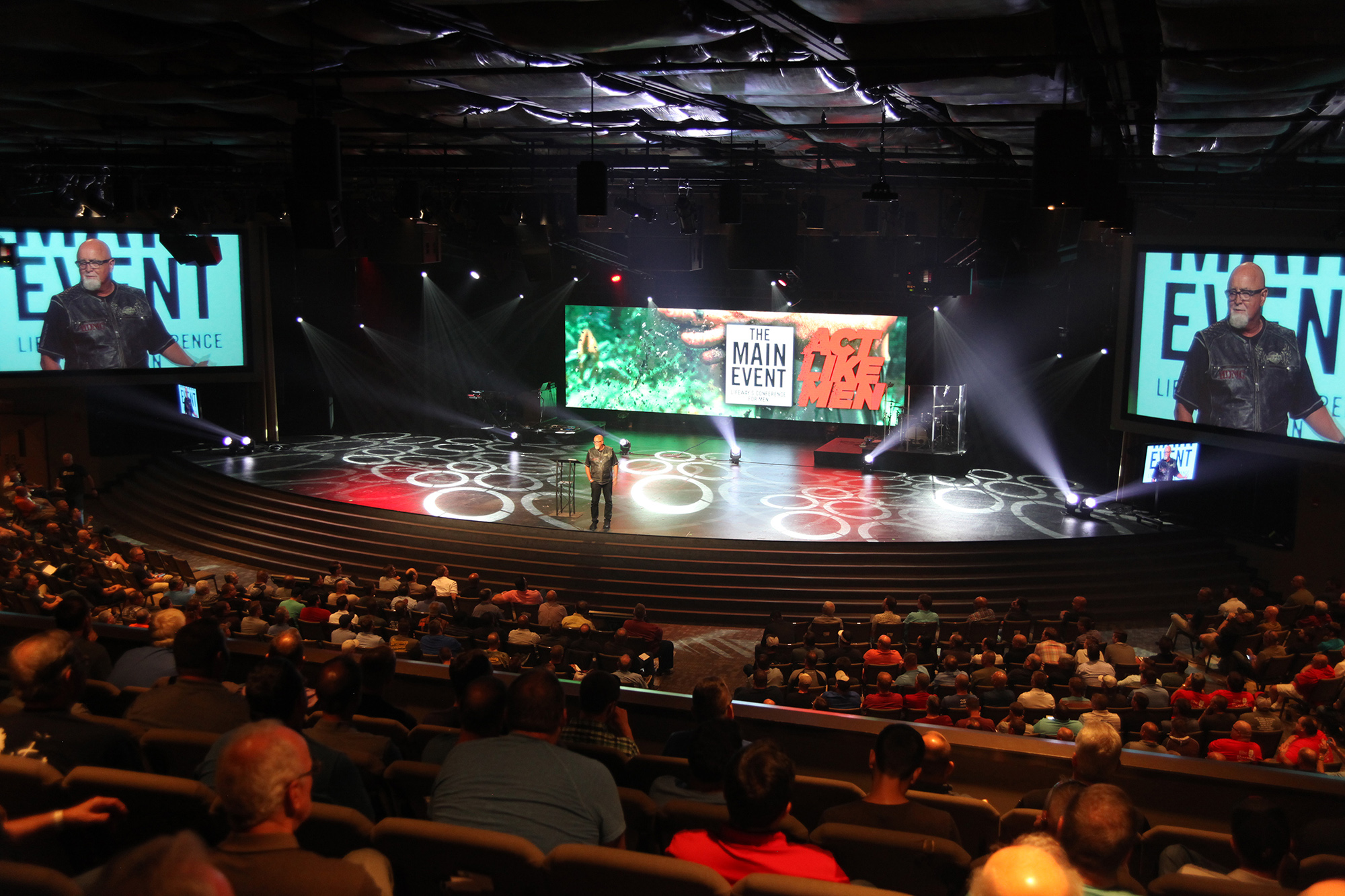
COLUMBUS, Ohio (BP) — Preaching straight through the Bible has its risks, pastors acknowledged in a panel discussion held during the Southern Baptist Convention’s annual meeting in Columbus, Ohio.
 Panelists urged a balance between verse-by-verse explanation and sermons on specific topics at a June 16 breakfast meeting sponsored by The Gospel Project, a curriculum series of LifeWay Christian Resources.
Panelists urged a balance between verse-by-verse explanation and sermons on specific topics at a June 16 breakfast meeting sponsored by The Gospel Project, a curriculum series of LifeWay Christian Resources.
Many pastors believe tackling Scripture verse by verse from the pulpit is the only acceptable approach, said moderator Ed Stetzer, general editor of The Gospel Project.
But that view may be different from the pews, the four panelists agreed. Continuity is broken if people don’t attend every service — and “I can guarantee you during football season you’re going to have people who are there every third Sunday,” said Chip Henderson, pastor at Pinelake Church in Jackson, Miss.
A lengthy series of sermons can leave newcomers “feeling like they’re catching the movie in the middle,” said H.B. Charles Jr., pastor of Shiloh Metropolitan Baptist Church in Jacksonville, Fla.
Most important, Stetzer said, a demand for expository preaching may discourage pastors in developing countries who lack the academic training to analyze every verse.
“We live in a world that needs a lot more serious expository preaching,” Stetzer said. “But when we hold this out as a norm across all cultures and times — a biblical principle that must be done — we impose a foreign model that is not found in Scripture.”
Pastors have the freedom to address their congregation’s needs, said J.D. Greear, pastor of The Summit Church in Raleigh-Durham, N.C., but if they stray too far from expository preaching, they risk emphasizing their own favorite issues rather than the whole message of God.
Another danger of topical preaching, the panelists said, is taking Scripture out of context to support a point.
“Sometimes it feels like an illustration is driving the sermon and you just happened to bump into the text along the way,” Charles said.
Henderson, who often takes a topical approach to his sermons, pointed out much of the New Testament was written that way — as letters addressing specific needs of the church.
People don’t care whether a pastor methodically explains each verse of the Bible, he said. “I think what they care to know is, ‘Whenever I come here, I’m being fed the Word of God.”
The other panelists said they preach through books of the Bible in series of varying length. Greear’s typical series lasts eight weeks, although Acts took about a year. Charles said he is in no hurry to finish preaching through Ephesians, and Stetzer has spent three years to get midway through Matthew. “I told the people we’re halfway through, and they wept,” he said.
Still, the pastors acknowledged the verse-by-verse approach isn’t commanded in Scripture and probably wasn’t practiced by the early church.
“There’s something in me that feels weird about taking a year to preach through a letter that would have originally taken about 20 minutes to read in its entirety,” Greear said.
The panelists noted they blend the verse-by-verse approach with flexibility that allows them to address special days and special needs. Charles departed from his series on Ephesians when he realized sticking to the schedule would have him preaching about sexual immorality on Mother’s Day. But when his predominantly black congregation was working toward a merger with a predominantly white one last year around the same time as a racially divisive police shooting in Ferguson, Mo., Charles stayed in Ephesians 2.
“I did not have to find a sound-bite text,” Charles said. “God the Holy Spirit, who knew where we would be before we got there, had the right word we needed at the right time.”
Pastors today can’t assume people understand Christian theology, Charles said. “The heart of it is you need to explain things. People need to become familiar with the content of the Bible.”
Deep familiarity with the Bible is a major goal of LifeWay’s Gospel Project, Stetzer said. The Gospel Project will hit a million users a week this fall with a curriculum that is chronologically aligned so people in all age groups study the same Scripture at the same time.
Ultimately, Henderson said, what drives any message is the Spirit of God. “If He does that through a topical message, go for it. If He does it through verse-by-verse exposition, go for that.
“You want to be a shepherd who loves Jesus and then loves people toward Jesus. That will give life and vitality to your preaching.”





















